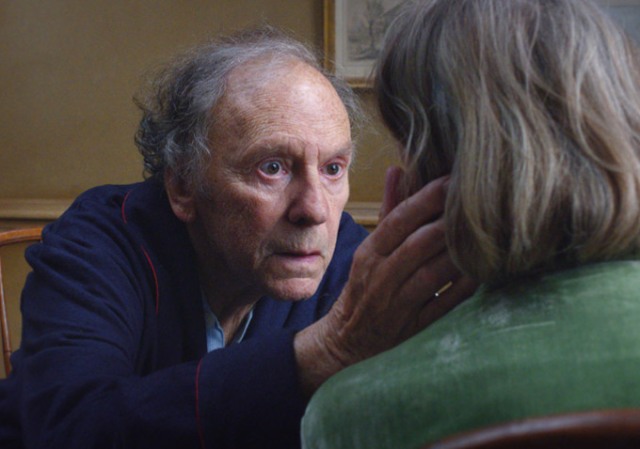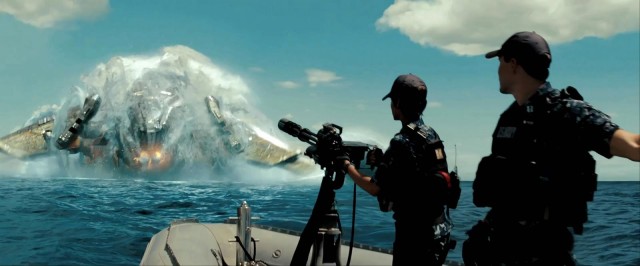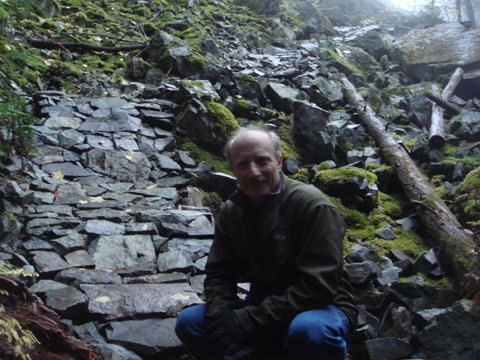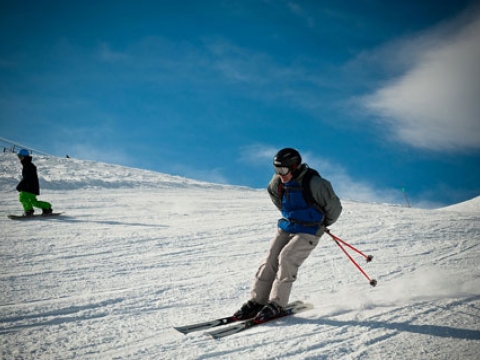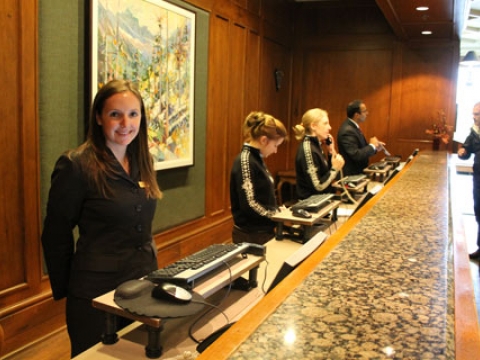I agree with the New Yorker when they say that 2012 was a year of more anticipation than payoff. There were lots of films to look forward to but few lived up to their hype.
There were nevertheless some excellent films released this year and these were the best of the ones I saw. I regret that I did not catch “Argo,” “Looper” or “Silver Linings Playbook” so the list is open to amendments.
Best Films of the Year
10) Les Miserables – Raw, blustery and strangely powerful. Tom Hooper’s decision to have the actors sing live was jarring, yet effective at conveying the characters’ emotions. The picture loses steam about halfway through but gets a second wind with the arrival of the student revolution. My family saw it on Christmas, and my family had hardly a dry eye among us.
9) Moonrise Kingdom – Naive, awkward and idealistic – yes, we imagine this is what young love is like, and Wes Anderson makes it utterly charming. His story of lovestruck children who run away together has all the delights of his other pictures, with vivid colours that recall The Royal Tenenbaums. And there are few better uses of Benjamin Britten’s music than you’ll see here.
8) Rust and Bone – It was a glorious year for French cinema internationally, and Jacques Audiard’s film is probably its grittest offering. The director of “Un Prophete” continues his study of people on the margins of French society when he focuses on a backyard MMA fighter (Matthias Schoenaerts) who forms a curious friendship with a whale trainer (Marion Cotillard) who suffers a traumatizing accident. The film opts for a string of encounters over a clear narrative and it draws unexpected chemistry out of its leads.
7) Holy Motors – I’m being a tad disingenuous with this pick. I didn’t like Leos Carax’s cinematic elegythe first time I saw it. But then I came to see it as a work that (subtly) expresses dejection with technological reproduction, and how it distances us from the Real. Denis Lavant deserves an Oscar nomination for his performance as M. Oscar, a performance artist acting out a series of characters for an unseen audience.
6) Zero Dark Thirty – It’s hard to overlook Kathryn Bigelow’s alleged collusion with the Central Intelligence Agency. But if you can, you’ll find beneath it a gripping, doc-like thriller that plays like a breathless police procedural. Critics claim the film glorifies torture but I’m not so sure. I found the film more ambiguous in its depiction of torture and the practice’s usefulness in tracking down Osama bin Laden. It’s a patriotic film, just more subtly than most critics would like to admit.
5) Lincoln – How often can you be relieved that Liam Neeson turned you down? The Irish actor was Steven Spielberg’s first choice to play America’s 12th president, and when he backed out, Leonardo DiCaprio stepped in to get another, better Irish actor the part. The act was serendipitous, as Day-Lewis both anchors and drives this political drama about the fight to abolish slavery. Most stunning about the film is the dramatic ideological reversal between Democrats and Republicans. The 19th century Democrats depicted here would find themselves right at home among the Tea Party.
4) Django Unchained – While Lincoln depicted the lighter side of abolishing slavery, Quentin Tarantino’s picture concerned itself with the more horrific impacts of the practice… and made it a rollicking, bloody good time. Tarantino here makes Jamie Foxx the hero of a modern spaghetti western, with Christoph Waltz turning babyface as a bounty hunter who helps him track down his enslaved wife.
3) The Master – Paul Thomas Anderson’s films are connected by two themes: empty grandeur and a sense of belonging. They are fitting themes for a film that references Scientology. Joaquin Phoenix’s performance in I’m Still Here was a mere audition for his performance as an aggressive, alcoholic, immature war veteran who falls in with a religious movement led by Philip Seymour Hoffman’s faux-intellectual. It is simultaneously the year’s most beautiful, and yet disturbing film.
2) Amour – We all feel for a sick relative, but we rarely see the toll it takes on a family day to day. Michael Haneke puts us up close and personal with an aging couple trying to cope with the debilitating effects of a stroke. Emmanuelle Riva delivers a heartbreaking performance as a woman waiting to die, while Jean-Louis Trintignant is simply devastating as her disillusioned husband. He can register a world of hurt in a single glance.
1) Beasts of the Southern Wild – Benh Zeitlin’s drama is a strikingly original vision of people who live on the margins, and fight to keep it that way. His characters inhabit a backwater world beyond the New Orleans levee and must contend with forces bigger than themselves to keep it theirs. Quvenzhane Wallis delivers a revelatory performance as Hushpuppy, a spritely young girl who must contend with all manner of beast, both fact and fantastical.
Bravest Film
Cloud Atlas – Imagine the pitch meeting. The filmmakers walk into a room full of proucers and ask for $140 million to make a three-hour epic based on a high-concept novel that narrates a story across seven different planes. Thank goodness for the gutsy Germans who put up the money, because the result is a spectacular, though emotionally unengaging picture that could have fallen apart at so many turns. That it never falls into incoherence is a credit to Tom Tykwer and the Wachowskis’ narrative skills.
Surprises
Chronicle – Call this Teen Hulk, or Fly By Me. It’s the story of three teens who develop sudden superpowers when they stumble on a glowing orb underground. At first it’s cool, but then the social outcast among them thinks to use those powers to take revenge on all who’ve oppressed him. Max Landis’ debut is a powerful, if predictable fantasy that gets right to the dark heart of power.
The Grey – Joe Carnahan’s survival thriller sticks out in the mind because it came out at a time of year when films this good generally don’t. Liam Neeson leads a group of oil workers turned prey when their plane crash lands in the wilderness, catching the attention of a pack of angry wolves. Pedestrian material is elevated by outstanding production values, including one of the more harrowing plane crashes ever put on screen. But what really sets it apart is its ending, which hints at more metaphysical powers imperilling the men.
Disappointments
The Hobbit: An Unexpected Journey – So whose bright idea was it to stretch a 310-page book into three, three-hour epics? You could read the book in less time than it takes to see all three films. Every minute is stretched out to the thinness of a human hair, leaving you to jostle and turn in your seat in the thinner hope that it’ll entertain you. Martin Freeman and Andy Serkis do their best with what they’re given, but even they can’t save the first part of what may be a failed trilogy.
The Life of Pi – There’s a heart somewhere in this picture, I just couldn’t find it. Ang Lee’s adaptation of the Yann Martel novel is every bit as spectacular as its billing, with a whale that jumps out of phosphorescent waters and a living island where meerkats reign supreme. But nothing in the film could make me care about Pi, a young man set adrift on a lifeboat with a Bengal tiger. Perhaps it was the film’s visuals that made it difficult to swallow. For all their beauty, they imbue the picture with an artificial quality, or maybe it’s the flat narrative arc of Pi retelling his story to an emerging author. Whatever it is, the whole picture just feels D.O.A.
Worst
Battleship – Some films you just know will suck right from the beginning. And so it goes with Peter Berg’s adaptation of the popular board game. The acting is terrible, the dialogue laughable and the action scenes show us nothing we didn’t already see in the Transformers movies. Taylor Kitsch had a terrible year with this and two other releases, and it leaves you to question whether he’ll ever recover.
Savages – I thought I’d given up on Oliver Stone after W. and World Trade Centre. Yet I was still drawn to his latest picture, about a pair of dope-growers forced to do battle with a Mexican cartel. The trailers promise a supercharged, exploitative action flick, and it is, but it’s also cliched and unpleasant, with a ditzy Blake Lively voiceover that does nothing to make it more bearable. Stone proves nothing except that Quentin Tarantino is the only one who can do exploitative violence correctly.

